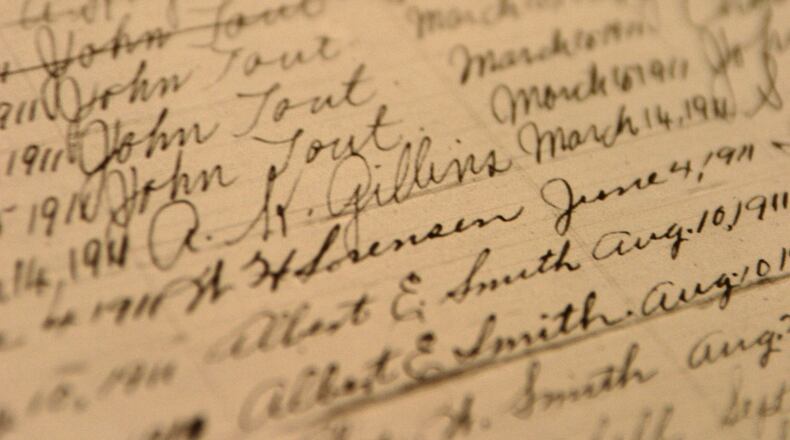As you research your family history, it’s important that you check variant spellings of surnames.
In the October-November issue of “Family Tree Magazine,” the article “Work it Out” includes a chart that you can use to keep track of ancestral surnames and their various spellings and translations. In the old days, when we relied on books and compiled indexes, sometimes a misreading of a name led to a record being listed under an unrecognized name. I know my “Pickard” ancestor’s Georgia land record got picked up as “Pritchard” by one indexer and was lost until I happened to see it.
Through DNA testing, my friend J.E. Gates found that he matched the surname Berry. That led to the realization that his ancestry was French not English, with the ancestral family name being some form of barriere, French for gate or fence, changed to just the English “Gates.”
It’s worth checking the old Soundex Indexing System, used for the 1880 and later censuses. The system looked at the root letters of a name, eliminating vowels and the letters Y and H. It stressed that vowels were interchangeable and could trip you up if you thought your surname could be spelled only one way.
Danish research
In the same issue of “Family Tree Magazine” listed above, David Fryxell, author of “Capital Danes,” discusses how surnames came about in that country. Valuable Danish records have been digitized and put online at FamilySearch.org, and on other websites. See his website is vikinggenealogy.com.
Cities had more than one newspaper. Check both
Cities today often have only one remaining newspaper. But, in the past, cities had two or more. Don’t forget to check each of them as not everything was covered equally in both. All newspapers may not have been digitized, so check your local historical society or archives.
About the Author
Keep Reading
The Latest
Featured


